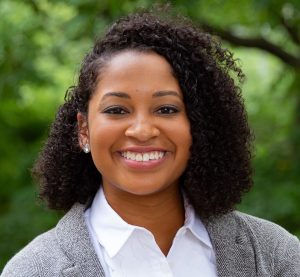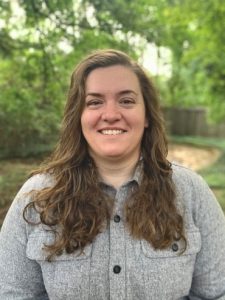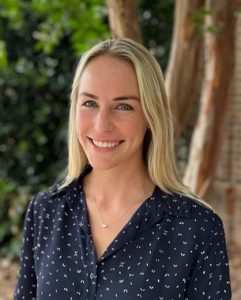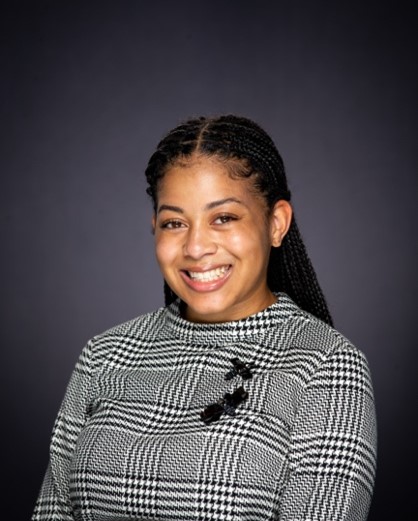Baez Lab Group

Shelby Baez, Ph.D., ATC
Assistant Professor, Department of Exercise and Sport Science
Director, Psychology of Sport Injury Laboratory
Previous Education
Ph.D., University of Kentucky, 2019
M.S., University of Kentucky, 2016
B.A., University of North Carolina at Chapel Hill, 2013
Contact Information:
Website: www.shelbybaez.com
Email: sbaez@email.unc.edu
Twitter: @shelbybaezatc
Dr. Baez’s research examines the impact of psychosocial factors on health outcomes after sport-related injury, with a focus on patients after anterior cruciate ligament reconstruction. Her lab examines the impact of psychosocial factors on biological outcomes, such as neurocognitive function, biomechanical alterations, and secondary injury risk. Her lab also seeks to identify clinically feasible and novel psychosocial interventions to improve health outcomes. These techniques range from graded exposure therapies to virtual reality mindfulness meditation. Dr. Baez has been funded by the National Institutes of Health and other regional and national foundations to support her work.
PubMed Link: https://www.ncbi.nlm.nih.gov/myncbi/shelby.baez.1/bibliography/public/
Awards and Honors
American College of Sports Medicine New Investigator Award, 2023
Approved Non-Certified Mentor by the Certification Council of the Association for Applied Sport Psychology, 2022
Association for Applied Sport Psychology Doctoral Dissertation Award, 2020
American Psychological Association Division 47 Professional Poster Award, 2020
Lyman T. Johnson Torch of Excellence for African-American Alumni Award at the University of Kentucky, 2019
The Team
Doctoral Students

Elaine Reiche, M.S., ATC, CSCS
3rd Year Doctoral Student
Educational Background:
B.S. Texas State University, 2016
M.S. Auburn University, 2018
Contact Information:
Email: reicheel@unc.edu
Elaine’s research seeks to understand changes in psychophysiological responses after ACL injury and reconstruction. Additionally, Elaine wants to develop interventions to enhance motor learning during rehabilitation that are also designed to address maladaptive psychophysiological responses. Overall, Elaine wants to improve quality of life and reduce secondary injury risk for patients after ACL reconstruction.

Caitlin Brinkman, M.S., ATC
2nd Year Doctoral Student
Education:
B.S. University of Michigan, 2018
M.S. University of Kentucky, 2020
Contact Information:
Email: cabrink@unc.edu
Caitie’s research seeks to understand the consequences of ACL injury and reconstruction on mental health and well-being and intends to develop interventions that promote treating patients from a biopsychosocial approach post-ACL reconstruction. Additionally, Caitie wants to identify how changes in sleep after ACL reconstruction affect short-term and long-term health outcomes, including return to sport rates and secondary injury risk.

Lorraine Wiley, M.S., ATC
Research Coordinator
Education:
B.S. University of North Carolina at Charlotte, 2017
M.S. Lenoir-Rhyne University, 2019
Contact Information:
Email: lawil@unc.edu
Undergraduate Volunteer Research Assistants
Chiebuka Onuoha
Mia Laws
Zoe Wade
Jasmine Bright
Current Grant Funding & Research Projects
- Virtual Reality Mindfulness Meditation in Patients Post-ACL Reconstruction, Awarded by National Institutes of Health. 2021-2026
- The GEMM Trial: Graded Exposure and Mindfulness Meditation for Patients Post-ACL Reconstruction, Awarded by the National Athletic Trainers’ Association. 2023-2026
- Feasibility and Validity of Smart Ring Technology to Reduce Barriers for Assessment of Physical and Mental Health and Well-Being, Awarded by the NC TraCS Clinical & Translational Science Pilot Grant Program. 2023-2024
- Don’t Sleep on Getting Sleep: Characterizing Sleep in Patients after ACL Reconstruction, Awarded by the Association for Applied Sport Psychology. 2023-2024
- Examination of Perceptual-Motor Function in Individuals after ACL Reconstruction, Awarded by the Mid-Atlantic Athletic Trainers’ Association. 2022-2023
- The Effect of Immersive Visual and Auditory Distraction on Lower Extremity Visuomotor Reaction Time and Jump-Landing Biomechanics in Individuals with Anterior Cruciate Ligament Reconstruction, Awarded by the Great Lakes Athletic Trainers’ Association. 2022-2023
DIVERSITY, EQUITY, ACCESSIBILITY, AND INCLUSION
The Psychology of Sport Injury Laboratory is dedicated to creating a safe, inclusive, collaborative, and equitable learning and research environment. We welcome and embrace researchers of all races, ethnicities, gender identities, sexual orientations, and abilities. We meet people where they are at and encourage a growth mindset to take on challenges and learn from them. Below is a list of our specific values that helps to guide our work to address inequalities in science.
Research Specific Values:
We strive to engage in research that is patient-centered, and clinician focused to promote a biopsychosocial approach to patient management. This includes engaging in ongoing projects that focus on examining and improving health outcomes in the following groups:
Women
Racial/Ethnic Minorities
We strive to be intentional in our recruitment of underrepresented groups in our samples.
Some specific ways our lab members are involved in diversity, equity, and inclusion efforts:
Safe Space and Mental Health First Aid Training
Serving Institutional, Regional, and National DEI Committees
Mentoring students from HBCUs and HSIs
Follow us on Twitter: @psiunc
